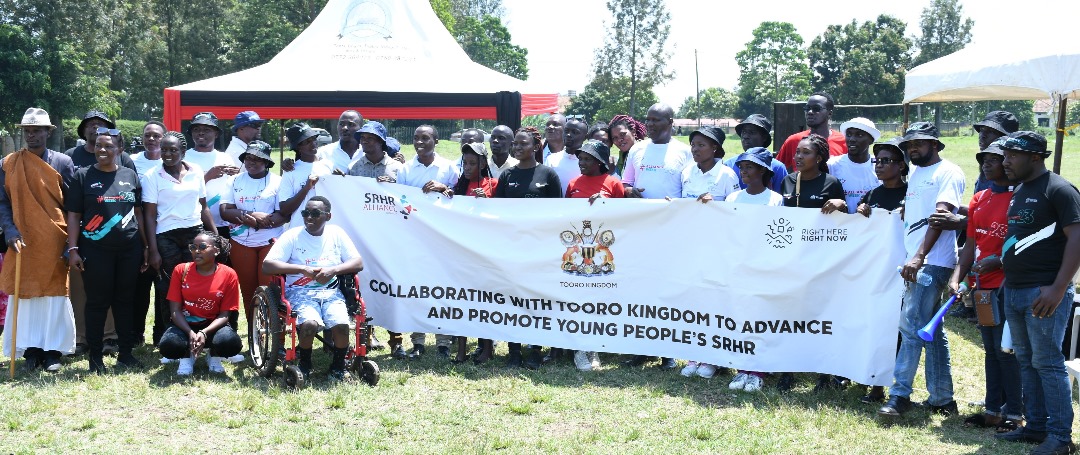
Why Parents must get involved in open talks about adolescent Sexual and reproductive health.
BY: BETTY MUJUNGU
In a joint effort to equip young people with accurate information about their Sexual Reproductive Health and Rights (SRHR), the Voice of Toro Gender Desk, in collaboration with civil society organizations and Fort Portal City Council, has launched a series of targeted radio programs and community dialogues.
‘‘It feels as if I am (a parent) introducing sex to my children. That feels like taking away your own children’s innocence’’ said Joseph, a father of four children during the dialogue recently held in Fort Portal City.
His skepticism of open conversations on SRHR with children lays bare the context that informed the initiative.
Ms. Tayebwa Pudens, a SRHR specialist said some parents, like Joseph, fear to talk to their children but advised them to model a change in attitude towards sexual and reproductive health and rights.
‘‘When we talk about enjoying sexual and reproductive health and rights, here’s what we mean; people being able to have a satisfying and safe sex life and that they can reproduce and the freedom to decide if, when, and how often to do so,” she stated.
The initiative aims to foster open conversations while ensuring that parents play an integral role in guiding and supporting their children through these critical topics.
Teenage pregnancies on the rise
It comes at a time when government authorities are decrying the rising cases of teenage pregnancies among girls aged 10 to 19 due to a lack of accurate information about their sexual and reproductive health and rights within this age group.
The HIV status report from October 2023 to March 2024 of Fort Portal City showed that in a total of 18 health facilities in the city, 320 pregnant girls [10-19] reported for antenatal care with 15% of them HIV positive.
Ms. Pudens is emphatic that both men and women need to be well-informed and to have access to the safe, effective, affordable, acceptable, and legal family planning methods of their choice, along with the right to access appropriate healthcare services.
She added that to achieve it, parents need to play an important role by discussing SRHR issues with their children, and even parents themselves need to be interested in the sexual and reproductive health of their children but not leave such discussions to aunties or uncles who may end up telling those beliefs and attitudes that parents don’t want.
‘‘Parents need to understand that most children are exposed to a lot of things through the internet, TVs, and peers. So they need to put aside their silence and face the fact that these issues are real,” she noted.
Mr. Katungi Kenneth, a Clinical Officer and Sexual Reproductive Health and Rights advocate working with Youth and Women Empowerment (YAWE) foundation in Fort Portal says young people must have access to accurate information in spaces where they feel safe to speak out.
‘‘Where I work we have created a safe space for youth-friendly services. We have various youth activities. We play football, netball, and drama performances, and we also reach out to young people in schools, after participating in activities, the young people gather and share information on sexual and reproductive health and rights and we also learn how we can take care of ourselves and improve our overall health,” he said.
Girls are on their own
Importantly, adolescents are taught how to avoid early pregnancies and sexually transmitted infections such as HIV/AIDs, and also where they can access contraceptives.
Basemera Irene, a youth champion, says parents can help, especially these days in urban settings.
‘‘In the past, it was difficult for our youth to discuss sexual issues with some of the parents. How could we start? Where could we start from? We could be slapped if we dared. But now, both children and some parents have accepted that the world is changing. So there is improvement on how children and parents discuss issues of SRHR,’’ she said.
Kembabazi Agnes, 16, a senior three student and peer counselor at Mpanga Secondary School says that many girls are willing to talk to their parents about these issues, but the parents are not willing to talk.
She adds that when they [girls] realize that their parents are not willing to open up and share the right information, they end up sharing with their peers.
‘‘Even when girls are having issues with boys who disturb them by touching them, it may take a long time for them to disclose this to their parents for fear of being judged or not understood. So they easily tell me and I advise them,” she noted.
The Project officer VOT Gender Desk, Mr. Kato Hussen, said religious leaders, cultural custodians, and parents must acknowledge the growing reality of young people accessing and using sexual and reproductive health services rather than shying away from these issues.


